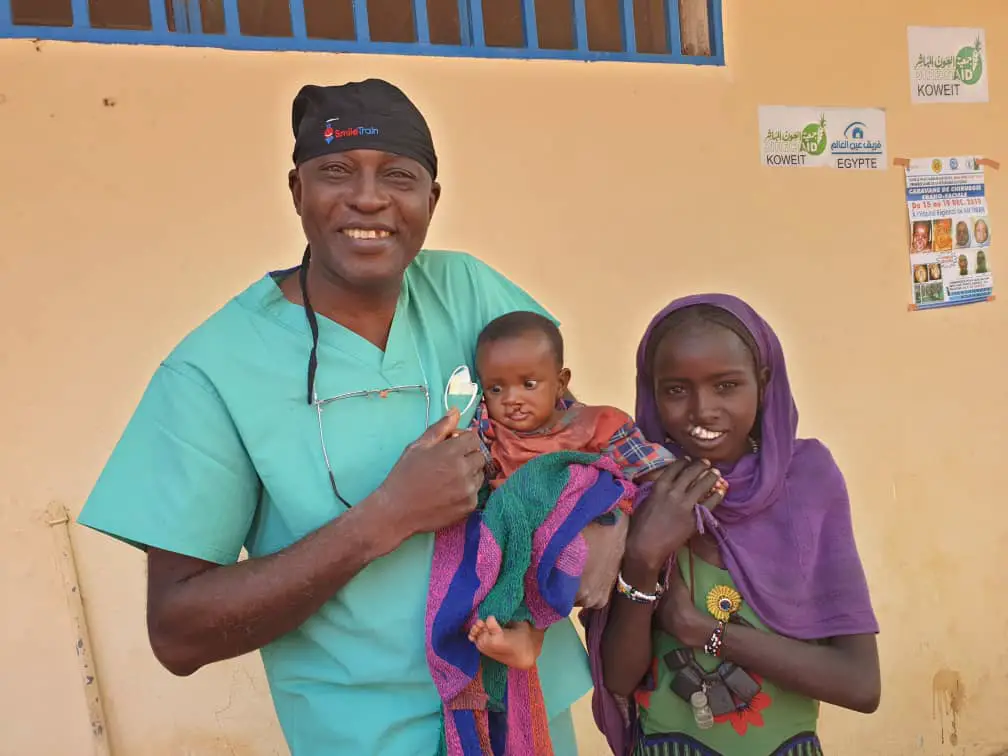- Abu Dhabi radiates optimism as over 300 startups join AIM Congress 2024
- TLcom Capital Raises $154 million in Funding to Boost Its African Growth
- Africa’s $824Bn debt, resource-backed opaque loans slowing growth — AfDB
- LB Investment brings $1.2 trillion portfolio display to AIM Congress spotlight
- AmCham Summit kicks off, setting course for robust future of US-East Africa trade ties
- Why the UN is raising the red flag on the UK-Rwanda asylum treaty
- Portugal’s Galp Energia projects 10 billion barrels in Namibia’s new oil find
- Wärtsilä Energy offers tips on how Africa can navigate energy transition and grid reliability
Browsing: Health
The Government of Sweden gave $4.4 million to the United Nations Children’s Fund (UNICEF) to support Uganda’s COVID-19 response and efforts towards the continued delivery of essential health services for pregnant and breastfeeding women, young children, newborns and adolescents.
UNICEF and its partners have continued to help Uganda in controlling, containing and mitigating the impact of COVID-19 pandemic. The organization is mostly focused on strengthening access to essential services like health care.
Due to restrictions on movement and fears of contracting the virus, many women and children have missed out on much-needed health care, including newborn and maternal care, HIV medications, vaccinations and nutrition services, exposing them to heightened danger.
Also Read:Redefining the health system in Africa after the pandemic
“Few things could be more important right now than supporting people’s health. It is extremely important that antenatal, delivery, and postnatal services, along with different levels of emergency care …
Tanzania’s National Bureau of Statistics (NBS) report on the first-quarter gross domestic product (GDP) showed that the Tanzania economy managed to hit 5.7 per cent growth in Q1 compared to 6.3 per cent in the previous year similar quarter.
According to the report, the Q1 value of GDP in absolute terms GDP stood at around $ 15 billion compared to over $14 billion in 2019. On the same mark, the value of GDP at 2015 constant prices rose to nearly $13 billion in Q1 from $9 billion in the corresponding quarter in 2019.
However, the comprehensive report shows that the reformed mining and quarrying industry recorded the highest growth at 15.3 per cent and gold production was a factor.
The newly World Bank categorized middle-income nation of more than 58 million, also saw growth from human health and social work activity (10.2 per cent), professional, scientific and technical activity (8.9 …
By Sachen Gudka
Coronavirus is our wake-up call. No one could have predicted its disastrous impact. But that is the nature of disasters; most are sudden, unpredictable and leave in their wake unimaginable misery and loss. We have been quite rudely awakened to the essentiality of disaster resilience.
Anything that we do from now on, any buildings, any plans and any developments as a country have to be done through a disaster resilience lens. Any policies developed and implemented should be able to answer the questions: ‘Will they help us get through the next disaster shock with minimal loss? Will they help us bounce back fast enough and set us on our feet to recover quickly? And more importantly, if we are ever to be left with no options but to close our borders, can we sustain ourselves?’
At the moment, efforts to reduce exposure and spread of the virus …
If there is anything that the spread of the COVID-19 (Coronavirus) pandemic across the world leading to partial or total lockdown in several countries has taught us, is that we need to be prepared financially for any eventualities today more than ever.
Barely two months ago, people across the world were planning and budgeting for the New Year without the realization that soon many would be losing employment or experiencing a cut of their normal income.
The global pandemic has brought the world to a standstill. This is an unprecedented time of trying to manage our lives behind closed doors, reaching out to those who need our help, and somehow remain afloat with the minimal income we have left.
Although the pandemic is just in its early stages in East Africa and most African countries, we should be learning from other countries like China and Italy. If we adapt to …
When we speak of inclusivity in healthcare, cleft lip and palate surgery is often considered a footnote in the priorities given to healthcare financing. Around the world, many children with clefts live in isolation, making it difficult to make friends and go to school, but more importantly, have difficulty eating, breathing, and speaking. As we seek to achieve Universal Health Coverage, the long-term benefit of treating a single cleft at an early stage can bring in as much as $50,000 to the economy. This economic benefit therefore deserves to be considered a priority as governments address paediatric surgical care.
The Fourth meeting of the Global Initiative for Children’s Surgery (GICS IV) which took place in Johannesburg from 17th-18th January 2019, brought together providers and implementers of surgical services for children, along with health, advocacy, and policy experts. Participants discussed the current state of surgical care for children …
World Bank’s (WB) research on development economics which is focused on identifying successful development polices, has captured various significant insights in the world of development economics, and payment of health and education providers was in it, thus—there are crucial things to rethink to enhance the delivery of quality services.
According to the bank’s research, service providers—schoolteachers and health workers, in particular, are influenced by the payment incentives which dictate high-quality services. But how much they are paid also matters.
Taking the youngest continent in the globe into the context, Africa, of which its average real ages increased by 20 per cent between 2006 and 2017, supported by labour productivity gains, stand to benefit from revised payment schedules, as described by the bank.
Three ways service providers are paid
Fee-for-service is the first schedule of payment, that health workers and schoolteachers tend to get paid on, according to the specific services …
Dr. Esther Njoroge-Muriithi is the Vice President and Regional Director for Smile Train Africa.
When we speak of inclusivity in healthcare, cleft lip and palate surgery is often considered a footnote in the priorities given to healthcare financing. Many children with clefts around the world live in isolation, making it difficult to make friends and go to school, but more importantly, have difficulty eating, breathing, and speaking. As we seek to achieve Universal Health Coverage, the long-term benefit of treating a single cleft at an early stage can bring in as much as $50,000 to the economy. This economic benefit therefore deserves to be considered a priority as governments address pediatric surgical care.
The Fourth meeting of the Global Initiative for Children’s Surgery (GICS IV) which took place in Johannesburg from 17th-18th January 2019, brought together providers and implementers of surgical services for children, along with health, …
Sustainable development can’t be realized in Tanzania without a healthy population, that’s why the health sector has acquired a rather vital financial support from its development partner Germany to ameliorate, Information and Communications Technology (ICT) within the National Health Insurance Fund (NHIF) parameters.
According to a report by The Citizen, the grant was signed on 16th October, at Ministry of Finance’s premises in commercial city—Dar es Salaam, witnessed by ministry’s Permanent Secretary, Dotto James and Acting Germany Ambassador Jorg Herrera.
The grant comes at the time when insurance services are slated for adoption by the insurance industry in Tanzania. Per ministry of health records, more than 2 million households have been reached by the Tanzanian Community Health Fund (CHF), and more than 12.5 million beneficiaries, equivalent to 25 percent of the entire population in Tanzania.
READ: Tanzania focus on maternal health bears fruits as mortality drops
Patently, the grant …
For the second time, TEDX Oysterbay brought together a diverse range of experts, practitioners, artists, thinkers, visionaries and educators before an idea-thirsty community to the Little Theatre in Dar es Salaam. 12 TEDx speakers with interesting ideas challenging social norms and practices, shared their ideas before an audience of 100 people and many more via social media.
TED is a nonprofit devoted to spreading ideas, usually in the form of short, powerful talks. TED is the convergence of Technology, Entertainment and Design, and today covers almost all topics — from science to business to global issues — in more than 100 languages. Independently run TEDx events help share ideas in communities around the world.
In urban Tanzania, youth now perceive ideas as the new “social currency” for human development. Being the 7th largest economy in Africa and most populous nation in East Africa, human capital development is a vital …








